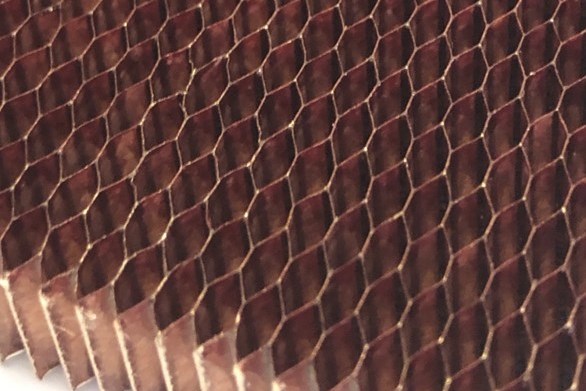BreakThru Technology reduces free formaldehyde in phenolic resins
The technology reduces free formaldehyde in phenolic fiber-reinforced plastic (FRP) resins to below 1000ppm (less than 0.1%).

Georgia-Pacific Chemicals
New BreakThru Technology launched by Georgia-Pacific Chemicals (Atlanta, Ga., U.S.) is said to have been shown in laboratory testing to reduce free formaldehyde in phenolic fiber-reinforced plastic (FRP) resins to below 1000ppm (less than 0.1%). The company notes that the technology shows promise for a variety of industrial applications by potentially meeting or exceeding standard phenolic resin performance at lower residual monomer levels for both water and solvent-soluble resins.
According to the company, reducing residual formaldehyde content in phenol-formaldehyde resins (phenolic resins) is a frequent request in composites and other industries. Phenolic resins used for industrial applications, such as abrasives, filtration, honeycomb, foaming, etc., historically contain free formaldehyde levels ranging from 0.3% to greater than 1.5%.
Georgia-Pacific Chemicals’ analysis also shows that free phenol levels are reduced with BreakThru technology and that resins have a faster curing profile. In addition, a honeycomb composite compressive strength study suggested improved performance in those applications.
Analytical studies of this technology will be presented as a technical paper at CAMX September 21-24, 2020 by Carlos Maldonado, senior development chemist, Georgia-Pacific Chemicals. They will compare the new technology with a commercially-available phenolic resin via thermal analysis, gas phase chromatography and high-performance liquid chromatography.
Georgia-Pacific Chemicals will also be featuring BreakThru technology at the Virtual CAMX conference September 21-24, 2020.
Related Content
-
The lessons behind OceanGate
Carbon fiber composites faced much criticism in the wake of the OceanGate submersible accident. CW’s publisher Jeff Sloan explains that it’s not that simple.
-
Cryo-compressed hydrogen, the best solution for storage and refueling stations?
Cryomotive’s CRYOGAS solution claims the highest storage density, lowest refueling cost and widest operating range without H2 losses while using one-fifth the carbon fiber required in compressed gas tanks.
-
Infinite Composites: Type V tanks for space, hydrogen, automotive and more
After a decade of proving its linerless, weight-saving composite tanks with NASA and more than 30 aerospace companies, this CryoSphere pioneer is scaling for growth in commercial space and sustainable transportation on Earth.















